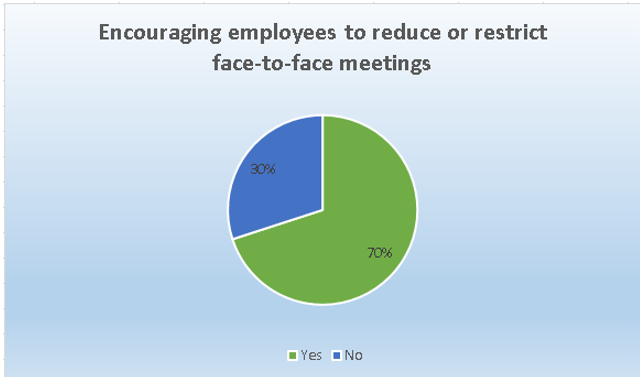
I was on the Big Tech podcast to speak about, what else, separating Amazon, Google, and Facebook. civil penalty $. I was also on Rising with Saagar Enjeti and Ryan Grim to discuss the Federal Reserve. And now It’s uncommon that a financing teacher triggers a public stir, however when it happens, it deserves taking note of, because it indicates that trillions of dollars might ultimately start to alter direction.
His paper got coverage in the Financial Times, Bloomberg, Forbes, and Institutional Investor, and will in the long-term make it harder for pension funds to put cash into private equity. Many people interested in criticizing private equity talk about how leveraged buyouts (” LBOs”) are bad for society. For example, one producer I talked to a couple of years ago for a piece on how finance ruined our defense industrial base told me madly about how the “LBO young boys” damaged our capability to make things (counts securities fraud).
He asked, are investors getting a great return? And his response is, because 2006, no. Phalippou’s paper is entitled “A Troublesome Fact: Private Equity Returns & The Billionaire Factory.” To paraphrase his argument, he generally explained the private equity industry business design by stating 40 years ago there were a lot of people with pensions and extremely with couple of private jets, whereas today there are extremely few individuals with pensions and a lot more billionaires with private jets.

Now to clarify, what Phalippou, and the majority of us, mean when we say “private equity” are buyout funds that use financial obligation to purchase companies like Toys R United States with obtained cash, and after that discover different ways of looting them. These are funds like KKR, Carlyle, Blackstone, etc. So when I write private equity, I indicate those kinds of funds, the billionaire factories, not smaller sized funds with know-how in a specific style of growth investing.

Prior to that year, LBOs did create returns for investors better than you might discover on the public markets, but later on, those excess returns disappeared. Why?To response this question, I turn to a 2006 antitrust match by private litigants against a group of LBO stores. These private equity companies were conspiring to hold down the cost of corporations they were bidding on, utilizing something called “club deals.” This antitrust match was an indicator that there was simply excessive borrowed money offered to make the most extreme versions of monetary engineering successful for completion pension fund financier (investors state prosecutors).
These are precisely the forward thinking business practices LBOs like to ruin, and let loose by monetary deregulation and completion of anti-merger enforcement, they did – racketeering conspiracy commit. Michael Milken helped fund a host of takeover artists, some of whom constructed real companies like CNN and MCI, however a number of whom simply purchased up corporations like American Can, Beatrice Foods, or outlet store, pillaging them with layoffs and debt.
Private Equity Firms Are Increasingly Buying Crypto
The LBO market collapsed after Michael Milken went to prison in 1989 and Drexel Burnham collapsed, leaving an enormous void in the financial capacity of buyout stores. The market was also burned because of the massively costly contest to purchase RJR Nabisco for $25 billion in 1988. This auction was won by the most powerful buyout shop, KKR, however it showed to be an investment that was both unprofitable and embarrassing, sprinkled across the nation’s bookstores in the best-seller Barbarians at eviction.
In 1996, Expense Clinton signed the National Securities Markets Improvement Act, that made it a lot easier for unregulated pools of capital to get financial investment and set the phase for what followed (investment fund manager). Starting in 2001, leveraged buyouts came back, with the worth of deals increasing from $30 billion in 2001 to $450 billion in 2007.

Particular funds can have their own timelines, investment goals, and management philosophies that separate them from other funds held within the exact same, overarching management firm. Successful private equity firms will raise numerous funds over their lifetime, and as companies grow in size and complexity, their funds can grow in frequency, scale and even uniqueness.
Tyler Tysdal – Freedom Factory 2020
Prior to establishing Freedom Factory, Tyler Tysdal managed a growth equity fund in association with several celebs in sports and home entertainment. Portfolio company Leesa.com grew quickly to over $100 million in revenues and has a visionary social objective to “end bedlessness” by donating one mattress for every 10 sold, with over 35,000 contributions now made. Some other portfolio business remained in the industries of white wine importing, specialized financing and software-as-services digital signage. In parallel to handling possessions for companies, Tysdal was handling private equity in real estate. He has had a variety of effective personal equity financial investments and numerous exits in trainee real estate, multi-unit real estate, and hotels in Manhattan and Seattle.
from all over the world, and the exact same deregulated financial system and “reach for yield” by pension funds that pushed capital into mortgage-backed securities moved too much capital into big LBO shops. In 2006 and 2007, eight out of the 10 biggest buy-outs in private equity history happened. Significant business became part of this bonanza, like Hilton Hotels, the Hospital Corporation of America, First Data, Daimler Chrysler, TXU, Equity Office Residential Or Commercial Property Trust, GE’s plastics company, Bell Canada, and a host of others, with overall private equity acquisitions valued at $660 billion in 2006 alone.

The DOJ never ever brought a fit, but private litigants did. Investors sued 13 various companies for forming “clubs offers” from 2003-2007 in which they would come together and concur to hold down prices for corporations being bought in auctions. The defendants were a little circle of companies who had emerged from a group who had actually found out how to do takeovers largely with Milken-organized junk bond distributes, including KKR, Carlyle, Bain, Blackstone, Thomas Lee Partners, TPG, Apollo, Clayton, Dubilier & Rice, Goldman Sachs, Merrill Lynch, along with Silver Lake Partners, Warburg Pincus, and Providence Equity Partners.
Eric Lichtblau and Peter Lattman at the New York Times composed up the case in 2012, keeping in mind that “rivals concurred privately to ‘stand down'” on companies at auction as a method of divvying up acquisition targets. A few of the corporations included in the fit were Neiman Marcus, Toys R Us, Michaels Stores, Univision, Loews, the AMC movie chains, Freescale Semiconductor, and Alltel.
What makes this case interesting is that the practices came simply as the leveraged buy-out video game was ending up being commodified, with a lot of companies chasing too couple of business possessions. The club offers, and the huge size of the buyouts, essentially eight different Barbarians at the Gate-size purchases in 2006, were signs that there just wasn’t any more financial obligation you might load onto business America – invested $ million.
Private Equity – Kpmg United States – Kpmg International
Certainly business America fell into disrepair as private equity funds cut a lot more than fat, sculpting deeply into bone and muscle. Here’s a chart of zombie business as a percentage of corporations in the U.S., which is to state, companies that pay more in financial obligation servicing expenses greater than revenues.
Keep in mind the timing of the upturn in this chart, which is best around when club deals became popular and the new LBO boom started. Leveraged buyout stores, as soon as they ran out of business targets who had some unexploited prices power or additional cash stashed someplace, turned to mobster tactics, the corporate variation of burning down a restaurant to gather the insurance coverage money, writ large across the economy.

But Phalippou’s paper is the other hand of this argument. He shows not that the LBOs are bad for the country, but that they are bad for the pension investors who provide the cash. This truth is not obvious, due to the fact that market could blame the monetary crisis for any issues in its funds raised in 2006.
In a rising market, such as the one we have actually had because 2009, the market looks like it is doing great, however that’s only due to the fact that borrowing cash to purchase possessions constantly looks excellent when times are great. Phalippou essentially managed for these factors, which is why his paper is so powerful.
